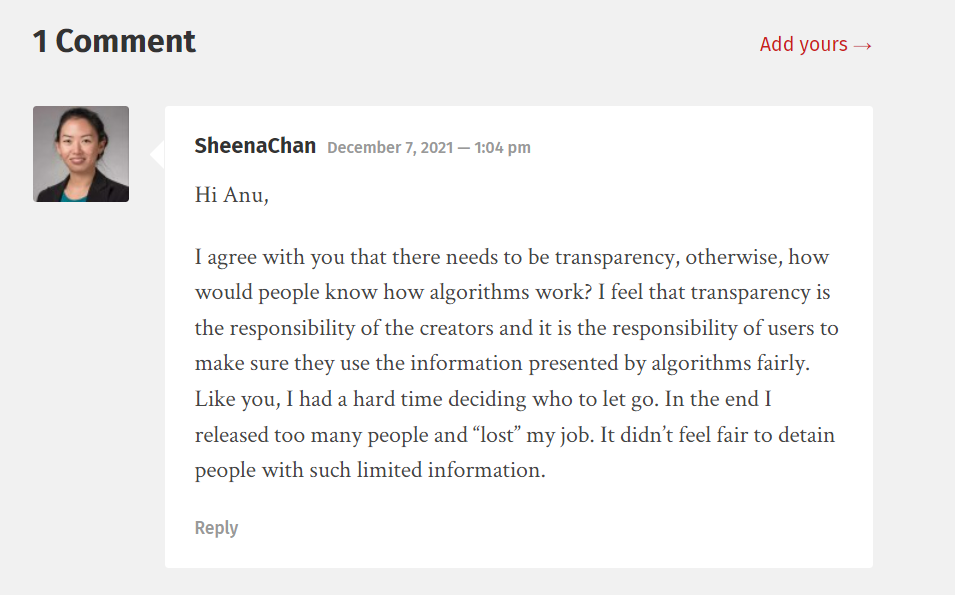I responded to Anu’s post because of her comment about algorithms need to be transparent and fair. What does fair mean exactly? Does it mean that everyone should be treated the same? If someone doesn’t show up for their hearing because they need to work to support their family, should they be treated the same as someone who doesn’t show up for their hearing because they were stealing to support their family? I wonder how an algorithm would process this? O’Neil (2017) mentions that the algorithm targets people in poverty. It’s impossible for an algorithm to consider all aspects of a person’s circumstances because at this time not all agencies are linked or even online (for example, hospital records). When an algorithm targets people based on their income or skin colour, it overlooks the underlying issues and perpetuates the biases that the algorithm was created with. I think algorithms can be seen as patterns that seek to repeat these patterns, which is why the same people keep getting pulled into this net. Judges in bail court have limited resources and time, if this is all the information you have, then is it fair to ignore it? Could algorithms be used for preventative measures instead so judges can properly listen to cases?
References
O’Neil, C. (2017, April 6). Justice in the age of big data. IDEAS.TED.COM https://ideas.ted.com/justice-in-the-age-of-big-data/
